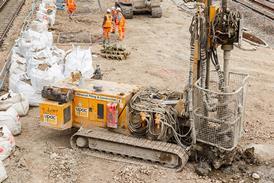Self-evidently, work executed cannot easily be removed from the site by an unpaid subcontractor or supplier after a contractor goes belly-up. Unfixed materials on the site are marginally less safe; although if the site is secured when the insolvency is announced, these materials are at least within the employer's control.
Accordingly, an employer who pays for work or materials on site is not likely to be significantly out of pocket on an insolvency. The amount paid to the contractor should be reflected in the work done on site – any additional cost will arise as a result of the delays or complexity of bringing in a new contractor.
The position in relation to unfixed materials off site is radically different. Upon an insolvency, the materials are not within the control of the employer and, if it has paid for them, it will have enormous difficulties recovering them. If the subcontractor has not been paid, it is likely the employer will have no legal right to recover the materials at all.
The JCT's answer is to impose conditions that must be fulfilled before the contract administrator can include the value of off-site materials in an interim certificate. These include the requirement that:
- The contract administrator has received "reasonable proof" that property is vested in the contractor. In other words, they must have checked that the subcontractor's or supplier's terms and conditions do not include a retention of title clause.
- The materials are set apart or marked to identify the project – so if the contractor becomes insolvent, the materials are clearly not available to the subcontractor or its creditors.
- The materials are "ready for incorporation". If the goods cannot be separately stored and marked because they are still to be worked on, they cannot be identified as the employer's property.
The JCT has also introduced a requirement for an "on demand" bond up to the value of off-site materials included in interim certificates. The amount of the bond reduces as the goods are delivered and its effect is that, upon insolvency, the employer may make a demand under the bond to the extent that he is unable to recover the materials.
If the contractor has gone bust no claim can be brought against it, so most vesting agreements are worthless
But what happens in practice? Bonds are rarely obtained in respect of off-site materials in the UK. They are more frequently obtained for off-site materials located overseas because the difficulties of recovering these goods are much greater. Also, payment tends to be made for goods before they are ready for incorporation. This means materials are very unlikely to be recovered on an insolvency.
Reflecting its obsession with paper, the industry has developed "vesting agreements". In essence, these require the contractor to state that property has passed to it and on to the employer and that the goods are set apart and marked. But this agreement is signed by the contractor, and if it has gone bust no claim can be brought against it under the agreement. This means most vesting agreements are worthless.
So what is the advice? Contract administrators must always check that conditions have been met before including the value of off-site materials in interim certificates. They cannot rely on vesting agreements. On top of this, the financial position of the contractor must be considered before the contract is executed. If the contractor is a member of a large group of companies, a holding company guarantee may be appropriate. If it is not, a bond must be considered.
Above all, the risks must always be explained to the employer. It may be sanguine about paying for furniture at its regular supplier's yard in High Wycombe. It may be less sanguine about paying for marble in Carrerra.
Postscript
Ann Minogue is a partner in solicitor Linklaters.
























No comments yet